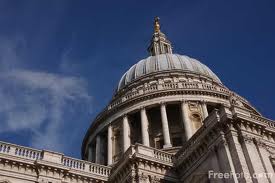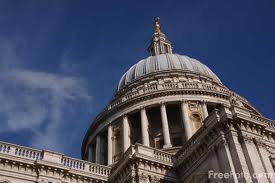A quick chronology
On 11 December, the government announced its response to the consultation on same-sex marriage that took place from 15 March through 14 June 2012. The initial consultation concerned how (not whether) to proceed with same-sex civil marriage. In its response to the initial consultation, the Church of England failed to respond to the question that the government had asked. It took the position that all marriage (civil or religious) was the same and that same-sex marriage should not be offered by the state. The church failed entirely to say how it could be offered, arguing that same-sex marriage should not be offered at all, even by the government in non-religious ceremonies. Unfortunately, the bishops of the Church in Wales said, in their response to the consultation, ‘The Church in Wales is in an almost identical position to the Church of England with regard to the solemnisation of marriages.’
In the course of the consultation, certain religious groups argued that they should be allowed to perform religious same-sex weddings, based on their right to religious freedom. In response to those demands, the government response included provision for same-sex religious marriage, including what has become known as the ‘quadruple lock’:
- Ensuring that no religious organization would be required to perform same-sex weddings;
- Allowing religious organizations to opt in and perform same-sex weddings;
- Amending the Equality Act 2010 to protect religious organizations and ministers from being sued for refusing to perform same-sex weddings; and
- Denying the Church of England and the Church in Wales power to opt in on the same basis as other organizations without additional primary legislation.
The debate about the fourth lock has now deteriorated into a he-said/she-said factual dispute in the court of public opinion. However, given the recent decision on women bishops and the Church of England’s continuing claims that it has consistently supported same-sex civil partnerships, which have been falisified here, the credibility of the Church of England is at a low ebb, and its testimony carries little weight.
Why this is not so bad for the Church of England
A change in internal Church policy involving a change in the canons, which currently provide ‘[M]arriage is in its nature a union permanent and lifelong, for better for worse, till death them do part, of one man with one woman …’, would likely require a change in statute law, which requires a church measure. Since 1919, the church has enjoyed the privilege of being able to pass primary legislation, subject only to parliamentary ratification in a single vote, which cannot amend the legislation. It seems likely that exercising the ‘opt-in’ option under the proposed legislation on same-sex marriage would have involved that extra step for the established church. Thus, as the church says in its original statement, the fourth lock simply preserves the status quo.
At the same time, if the doctrine of parliamentary sovereignty means anything at all, it means, ‘What the Queen in Parliament enacts is law.’ That principle, combined with its companion doctrine of implied repeal, means that the government of the day cannot get it wrong. If a law passed by the House of Commons is inconsistent with a previous law, then the previous law is repealed, except in unusual cases like the European Communities Act 1972 or the Human Rights Act 1998. Had the government simply permitted religious same-sex marriage with only the first and second locks, the courts would have had to sort out the consequences. That means the third lock is important, because it prevents heavy handed (but well intentioned and progressive) judges from forcing clergy to marry same-sex couples. Viewed in this light, however, the fourth lock is entirely unnecessary.
At bottom, however, the proposals do what they say they do and what the Church of England said it needed. They preserve the status quo, and if a sufficient number of members of General Synod decide that it is better to permit same-sex marriage, then their proposal will undoubtedly be ratified by the House of Commons without much debate. Little or no harm done.
Why this is really bad for the Church in Wales
Unlike the Church of England, the Church in Wales does not have the power to pass primary legislation in its Governing Body, as the Church of England can in its General Synod. The means through which Wales’ marriage law was retained after disestablishment is described in an excellent article by Nicholas Roberts, published last year. The retention of the civil law of marriage for the Church in Wales was not a product of the Church in Wales Act 1914, which designated Church in Wales churches as places of worship, like other non-established churches, where marriages could be solemnized and designated its clergy as persons who could be authorised to solemnize them. Rather, it was a product of the Church in Wales (Temporalities) Act 1919, which restored a number of privileges (and a lot of money) to the church.
The 1919 bill was highly politicized, and its history was deliberately kept obscure. The Home Secretary, Edward Shortt (a Liberal) was opposed to being too generous to the church, and he resisted the church’s successful efforts for re-endowment. The 1919 bill was drafted quickly over the weekend of 25–27 July 1919, just before the end of the parliamentary session and was approved while most Welsh Liberals were away at the Eisteddfod. Shortt’s obscurity about its marriage provisions, referred to in Roberts’ article, was understandable. Bishop Alfred Edwards of St Asaph wrote that the drafter of the bill was ‘a genius at wrapping up and concealing our gems’.[1] The restoration of the civil marriage laws may have been one of those gems. Shortt was probably as unhappy with it as he was with the financial parts of the bill.
But it’s come back to haunt the church. By arguing that its position was ‘almost identical’ to that of the Church of England, the Welsh Church implicitly sought the same legal protection granted to the English church, despite the fact that the Welsh Church is disestablished. However, although the pre-disestablishment marriage law has been retained for the Welsh Church, including the putative right to be married in one’s parish church, that right is abrogated by the third lock, which grants a conscience clause (and immunity from suit) to clergy who refuse to perform same-sex marriages. Lock 4 imposes an unnecessary burden on the Welsh Church, and it should be removed as far as it includes that church. In this case, the doctrine of implied repeal should be allowed to do the work it normally does.
Why this should not be an opportunity for the Labour Party
Labour overreaches itself when it refers to these provisions in the bill as an omnishambles; the government could not have done much better while trying to modify complex marriage laws, to balance equality laws and religious freedom and at the same time to reconcile irreconcilable, opposing interests. To claim otherwise is opportunistic. It seems clear that the constitutional, political and legal complexities of the law of marriage in Wales surprised the government. But good, sensible argument, not a generalized attack on the government’s competence is needed. And extending the omnishambles argument to the Church of England is entirely unfair given that church’s general, public refusal to cooperate with the consultation in the first place. The Church of Wales may have received a temporary scare, which will make it think twice in the future about trying to ride on the coat-tails of its established equivalent in the east. The Church of England may have received its just deserts for being obstinate. But the government should not be the target of general criticism for an honest mistake on an obscure point of law, which was unforeseeable when the Church in Wales did not address this point, or any other, in its response to the consultation.
The problems in this bill can easily be corrected. Labour shouldn’t be diverted into a general attack, which may make it look like a dog in the manger, disappointed not to have been able to introduce its own amendments to allow religious same-sex marriage. Such an amendment surely would have run afoul of even more niceties in the religious law of marriage in the UK than the government’s carefully considered bill has done. This is a cross-party question of policy that addresses a felt need by LGBT people and religious freedom for minorities like Quakers, Unitarians and Liberal Jews, as well as for those, like the Roman Catholic Church and the Church of England, who disagree. It should not be turned into a political football.
Scot Peterson is a Lecturer in the Department of Politics and International Relations, Oxford.
[1] Letter from Edwards to Frank Morgan dated 28 July 1919, National Archives of Wales, RB/Admin/Corr 8.





No Comment